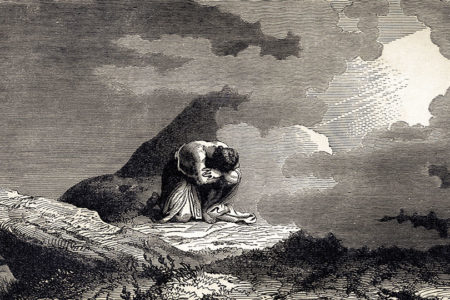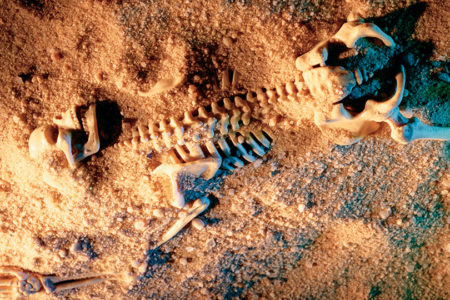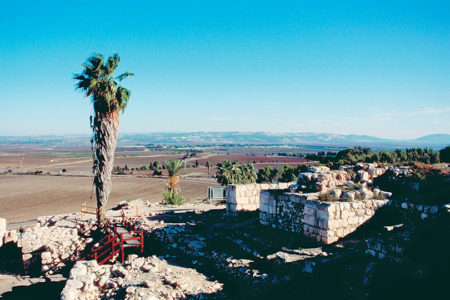Miracle Mother Part One
Sarah’s Affliction
Biblically speaking, Gentiles probably have more right to question God’s miracles than do Jewish people. After all, it wasn’t the Gentiles for whom God plagued Egypt or parted the Red Sea. It wasn’t the Gentiles to whom He gave the Ten Commandments atop a mountain obscured by smoke so thick and lightning and thunder so frightening that “all the people that were in the camp trembled” (Ex. 19:16). It wasn’t the Gentiles He led through the wilderness for forty years with a pillar of cloud by day and a pillar of fire by night (Ex. 13:21). It wasn’t for them He made the sun stand still on Gibeon (Josh. 10:12).
The list could go on and on. Even a man as brilliant as Chaim Potok (1929–2002)—a rabbi whose wonderful novels, such as The Chosen and My Name Is Asher Lev, plumbed the world of Hasidic and Orthodox Judaism and gained him worldwide recognition—seemed to have trouble believing in miracles.
In a scholarly, nonfiction work called Wanderings: Chaim Potok’ s History of the Jews, Potok tried to provide logical explanations for many biblical events; and he struggled with the ones he could not explain.
When Jochebed placed her infant son Moses in a basket in the Nile, “The child was given over to fate,” Potok wrote.1 He saw nothing remarkable in the fact that Jochebed then became Moses’ nurse after Pharaoh’s daughter fished the baby from the water.
Of the ten plagues God unleashed on Egypt to deliver Israel from slavery, Potok wrote: “Something of a chaotic nature must have occurred in Egypt for the escape to have succeeded.”2
In discussing the “drama at Mount Sinai,” he wrote: “Are the cloud, the fire, the thunder, a dramatic touch of a later teller of the event? We shall probably never know.”3
And of Sarah, who became mother of the nation of Israel by giving birth to Isaac at age ninety, he wrote simply: “To the astonishment of everyone, Sarah then has a child.”4
Astonishment indeed. The entire history of the nation of Israel is wrapped in astonishment—miracles for which there are no explanations apart from the sheer will and power of God. One of those miracles was the birth of Sarah’s son.
Sarah’s story begins in Genesis 11:29–30: “The name of Abram’s wife was Sarai. . . . But Sarai was barren; she had no child.”
In fact, Sarah (originally called Sarai) was probably the most famous barren woman in history. The Bible says she was extremely beautiful (Gen. 12:11, 14–15), full of faith (Heb. 11:11), and obedient to her husband (1 Pet. 3:6).
In her dealings with her Egyptian handmaiden, Hagar, she was also harsh and possibly even cruel, revealing traces of bitterness and jealousy (Gen. 16:5–6; 21:10). But her most defining characteristic by far was her barrenness. And it was probably her greatest affliction.
Scripture does not say how old Sarai was when she married Abram (later called Abraham) in his hometown of Ur of the Chaldeans (Gen. 11:31), modern-day Iraq. She was ten years his junior and was the daughter of Abram’s father, Terah, but not his mother (Gen. 17:17; 20:12).
God first called Abram in Ur, then called him again after he had started out for Canaan but went only as far as Haran. In Haran the Lord promised to make of Abram “a great nation” (12:2). He was seventy-five; Sarah, sixty-five.
In Canaan the Lord appeared to Abram again and told him, “Unto thy seed will I give this land” (v. 7). But Abram had no seed. Sarai was still barren.
Later God told Abram, “For all the land which thou seest, to thee will I give it, and to thy seed forever” (13:15). Then He added, “And I will make thy seed as the dust of the earth, so that if a man can number the dust of the earth, then shall thy seed also be numbered” (13:16).
Yet Sarah still went childless. Even Abram could not comprehend how God would fulfill His promise, and he begged the Lord to do something or else Eliezer of Damascus would become his heir, because “to me thou hast given no seed” (15:3).
Yet God assured him, “He that shall come forth out of thine own loins shall be thine heir” (v. 4). And Abram believed Him. So God declared Abram righteous based on his faith alone and made an unconditional covenant with him, sealing forever God’s divine vow to produce a nation from Abram and to give that nation the land of Canaan (15:7–21).
Yet Sarai remained barren. Finally, at age seventy-five, she gave up. She knew what God had promised. But ten years had passed since He had spoken in Haran, and Sarai was having trouble believing in miracles. So she did what seemed logical—and made a big mistake.
ENDNOTES
- Chaim Potok, Wanderings: Chaim Potok’s History of the Jews (New York: Alfred A. Knopft, 1978), 62.
- Ibid., 67.
- Ibid., 76.
- Ibid., 32.







